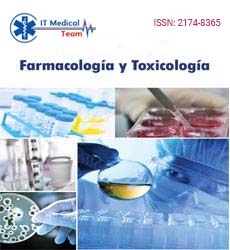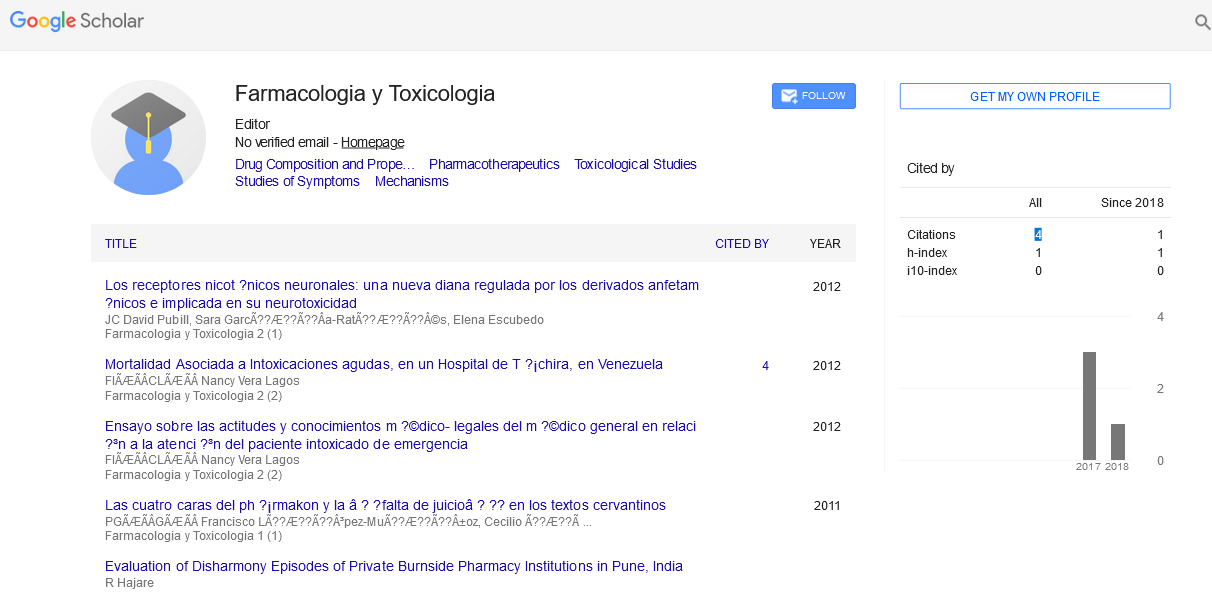Case Report - (2023) Volume 13, Issue 1
pharmacology's historical, contemporary, and future traces in Turkey
Susheel Kumar*
Department of Clinical Pharmacy, College of Pharmacy, India
*Correspondence:
Susheel Kumar, Department of Clinical Pharmacy, College of Pharmacy,
India,
Email:
Received: 02-Feb-2023, Manuscript No. ipft-23-13474;
Editor assigned: 04-Feb-2023, Pre QC No. ipft-23-13474;
Reviewed: 18-Feb-2023, QC No. ipft-23-13474;
Revised: 25-Feb-2023, Manuscript No. ipft-23-13474;
Published:
28-Feb-2023, DOI: 10.36648/2174-8365-13.1-153
Abstract
Preclinical and clinical drug development is a protracted and difficult procedure. The Kingdom of Saudi Arabia (KSA) is showing an increased interest in promoting indigenous content, research, and innovation, including clinical trials (Phase I-IV). Saudi Arabia now has more than 650 registered clinical trials, and this number is anticipated to rise. Making sure that medications are used safely and effectively is a crucial component of drug research and clinical trials. Because it focuses on the effects of medications in humans, clinical pharmacology is essential for helping decision makers make well-informed choices during the drug development process. Clinical pharmacology includes areas of study include pharmacokinetics, pharmacodynamics, and pharmacogenomics. It is a developing field with numerous applications in all stages of Choosing the best dosages for Phase I, II, and III investigations, assessing bioequivalence and biosimilarity tests, and planning clinical studies are all part of drug development. Clinical pharmacology will be incorporated into research as well as regulatory bodies' requirements, which will enhance the drug development process and speed up the pipeline. Additionally, clinical pharmacology is used in hands-on patient care with the aim of individualised treatment. To optimise dosing for patients on an individual basis, techniques including therapeutic drug monitoring, pharmacogenomics, and model guided precision dosing are applied. Clinical pharmacology is a subject that is underutilised in KSA, so we think it's crucial to educate the scientific community and healthcare professionals about its potential and uses. In this review article, we give a summary of on the usage and applications of clinical pharmacology in medical treatment as well as drug development.
Keywords
Leonurus japonicas, Systems pharmacology, Menstrual disorders, Target prediction, Molecular docking
INTRODUCTION
Drug development is a protracted, intricate, and expensive
process that begins with drug discovery and ends with structured
clinical trials. The promotion of innovation, research, and locally
produced material is becoming increasingly popular in the Kingdom of Saudi Arabia (KSA) [1-2]. Getting pharmaceutical
firms and contract research organisations (CROs) to perform
clinical trials in KSA is a top priority. In KSA, there are currently
around 650 registered clinical studies. This figure is regarded as
being quite low. In contrast, Poland, which has a comparable GDP
and population, has more than 6400 registered clinical studies.
Increased attempts are being made in KSA to perform more clinical trials, thus it is anticipated that this number will rise soon.
Clinical trials were not governed by any government agency in
KSA prior to 2009 [3-5]. Instead, local Institutional Review Boards
(IRBs) self-regulated clinical studies carried out at respective
locations. In 2009, the Clinical Trials Administration was formed
by the Saudi Food and Drug Authority (SFDA). Since 2013, early-
phase clinical studies (Phase I, II, and III) must be registered with
the Saudi Clinical Trials Registry and get SFDA permission before
study beginning. An important principle of drug development
and clinical trials, and its regulation is to ensure the safe and
effective use of drugs. This is where clinical pharmacology,
playing a vital role in informed decision making during the drug development stage [6-8]. Clinical pharmacology studies the effect
of drugs on humans and includes fields such as pharmacokinetics
(PK), pharmacodynamics (PD) and pharmacogenomics (PGx).
The fields have grown exponentially over the past two decades
and are used throughout the whole preclinical and clinical drug
development process. Particularly in positions such as choosing
the best dose for Phase II and III studies, dosing in particular
populations, assessing bioequivalence and biosimilarity studies,
medication and food interaction research, as well as planning and
carrying out clinical trials. Approximately half of the information
provided in the package insert is related to clinical pharmacology
.It is the responsibility of the clinical pharmacologists to evaluate
investigational new drugs. Since mathematical modelling and
simulation are now widely employed in drug development and
are referred to as pharmacometrics or Model Informed Drug
Development, many elements of clinical pharmacology have
become more quantitative. Since mathematical modelling and
simulation are now widely employed in drug development and
are referred to as pharmacometrics or Model Informed Drug
Development, many elements of clinical pharmacology have
become more quantitative. Model-informed drug development uses information from a variety of sources, including realworld
data, clinical research, and preclinical research, to inform
decision-making during the drug development process. The
Prescription Drug User Fee Amendments of 2017 set goals for
the US FDA that include model-informed drug development.
By individualised medicine, clinical pharmacology can also be
used in front-line patient care . To improve patient dosing on
an individual basis, techniques like therapeutic drug monitoring
(TDM), PGx, and Model Informed Precision Dosing can be
utilised. When seen from a regulatory, scientific, and industrial
point of view, these areas of clinical pharmacology act as a potent
instrumentfor improving drug safety and effectiveness in clinical
trials throughout drug development and patient care [9-10].
The goal is to promote and inform medical professionals and the
scientific community about the potential and uses of the science
of clinical pharmacology, which is still neglected in KSA. In this
review article, we discuss the uses of clinical pharmacology in
both clinical drug development and direct clinical treatment, as
well as give an update on Saudi Arabia's policies and practises for
drug development.
References
- Raman M, McLaughlin K (2010) Teaching in small portions dispersed over time enhances long-term knowledge retention. Med Teach 32: 250-255.
Indexed at, Google Scholar, Crossref
- Wijnen-Meijer M (2010) Vertical integration in medical school: effect on the transition to postgraduate training. Med Educ 44: 272-279.
Indexed at, Google Scholar, Crossref
- Harden RM, Davis MH, Crosby JR (1997) The new Dundee medical curriculum: a whole that is greater than the sum of the parts. Med Educ 31: 264-271.
Indexed at, Google Scholar, Crossref
- Regehr G (2010) It's NOT rocket science: rethinking our metaphors for research in health professions education. Med Educ 44: 31-39.
Indexed at, Google Scholar, Crossref
- De Vries TP (1993) Presenting clinical pharmacology and therapeutics: general introduction. Br J Clin Pharmacol 35: 577-579.
Indexed at, Google Scholar, Crossref
- Estus EL (2010) Using facebook within a geriatric pharmacotherapy course. Am J Pharm Educ 74: 145-147.
Indexed at, Google Scholar, Crossref
- Morrison-Griffiths S, Snowden MA, Pirmohamed M (2002) Pre-registration nurse education in pharmacology: is it adequate for the roles that nurses are expected to fulfil? Nurse Educ Today 22: 447-456.
Indexed at, Google Scholar, Crossref
- Harden RM, Sowden S, Dunn WR (1984) Educational strategies in curriculum development: the SPICES model. Med Educ 18: 284-297.
Indexed at, Google Scholar, Crossref
- Wood DF (2008) Problem based learning. BMJ 336: 971-972.
Indexed at, Google Scholar, Crossref
- Franson KL, Dubois EA, de Kam ML, Cohen AF(2008) Measuring learning from the TRC pharmacology E-Learning program. Br J Clin Pharmacol 66: 135-141.
Indexed at, Google Scholar, Crossref
Citation: Kumar S (2023) Pharmacology's historical, contemporary, and future traces in Turkey. Farmacologiay Toxicologia, Vol.13 No. 1: 103.





